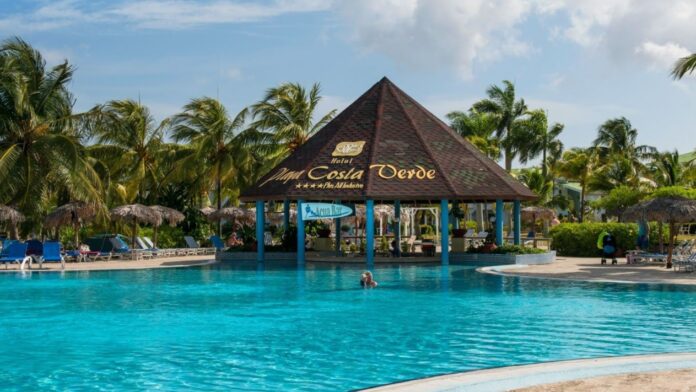
By Luis Rondón Paz
HAVANA TIMES – Canada and Cuba have a strange relationship, based mainly on tourism, especially the appeal of Cuban tourist resorts and its warm climate. When the winter season comes in the north, many Canadians turn to Cuba, attracted by its all-inclusive holiday packages and beaches. However, they tend to be unwilling to get involved with the complexities of Cuban politics.
When you’re a Cuban who’s just arrived in Canada, in my case to Quebec, and you get into conversation with a local, their questions often show their curiosity about Cuban reality. Questions about the Cuban economy and freedom of speech naturally arise. Lots of the time, I’ve felt uncomfortable knowing that most of these people are completely unaware of Cuban reality, and they choose to enjoy their vacations at resorts that belong to the Cuban military regime, taking the Cuban people’s apparent happiness for granted.
However, the reality of this feigned happiness hides a contrasting truth: the reality of Cuban society that has been surviving decades under a dictatorship that sells a public image that has nothing to do with what’s really happening behind the scenes.
The facade of happiness
One of the first things Canadians notice when they visit Cuba is the seemingly joyful and welcoming atmosphere. Cubans welcome tourists with smiles and a warm hospitality, making them feel at home. However, it’s important to understand that this happiness is a facade, up to a certain extent.
Forced smiles: Cuban hotel policy requires employees in the hotel industry to welcome tourists with a smile. Failure to comply with this regulation could lead to disciplinary measures. As a result, smiles tourists receive often have more to do with complying with this policy than genuine happiness.
Tips and remittances to survive: In a country where the average monthly wage is approximately $30 USD, tips tourists leave become a vital source of income. Many Cubans rely on these tips to cover their basic needs and to access goods and services that would otherwise be out of their reach.
Cuban sense of humor: Cubans have a unique sense of humor, often using laughter as a defense mechanism against the everyday challenges they face. Their ability to find humor in their own adversity pays testimony to their resilience.

Economic reality
Outside tourist resorts, Canadians are often curious about the economic situation in Cuba. While the country offers affordable holidays for them, the average Cuban citizen faces economic hardship that tourists rarely see.
Economic hardship: The centrally-planned economy in Cuba has faced countless challenges, which has meant limited economic opportunities for its citizens. Many Cubans struggle to satisfy their basic needs and depend upon government rations and remittances that their family members send from abroad to buy food and basic essentials.
A Single Currency: Cuba recently eliminated its dual-currency system, using only Cuban Pesos (CUP) now. But the magnetic dollar called MLC was introduced for Cubans to be able to buy at stores with cards that are topped up with money from abroad. This has led to a higher conversion rate for the US dollar (USD) and has shot up prices.
Freedom of speech
Curious Canadian tourists often ask about freedom of speech in Cuba, where the Government has strict control over the media and represses breakaway groups.
Limited media: The Cuban press is under the State’s strict control, severely limiting access to alternative sources of information. Dissidence is punished with prison sentences that can be as long as ten years, which means public discourse is lacking in political diversity.
Limited access to the Internet: Internet access is limited, especially during times of political events in Cuba, and it’s extremely expensive for many Cubans. Furthermore, online communications are monitored, and the regime controls the flow of information received both on the island, as well as whatever is being projected abroad.
Surveillance and repression: Surveillance and repression are especially intense for human rights activists and other minorities who don’t support the regime. Phone calls are tapped and there is rigurous surveillance of human rights activists and opposition members.
Conclusion
Despite the appeal Cuba has for Canadian tourists because of its tourist resorts, climate and hospitality of its people, I personally believe it’s essential that visitors are aware of the stark contrast that exists between this appearance of happiness and the harsh reality of life under a military dictatorship in Cuba. I would like to point out that many Canadians may not be aware that the money they spend as tourists is contributing to keeping an authoritarian regime in power in Cuba. This is especially important in the case of Quebec, a province that prides itself on principles of peace and human rights.
From my perspective, Cubans’ forced smiles, their dependence on tips, economic hardship and limited freedom of speech are only some of the complexities that define everyday life on the island. In this regard, I believe it’s essential Canadians visiting Cuba make informed decisions about their trips and contribute to a more profound dialogue about Cuban culture and the political implications of their choice of tourist destination.
Read more from the diary of Luis Rondon here.




